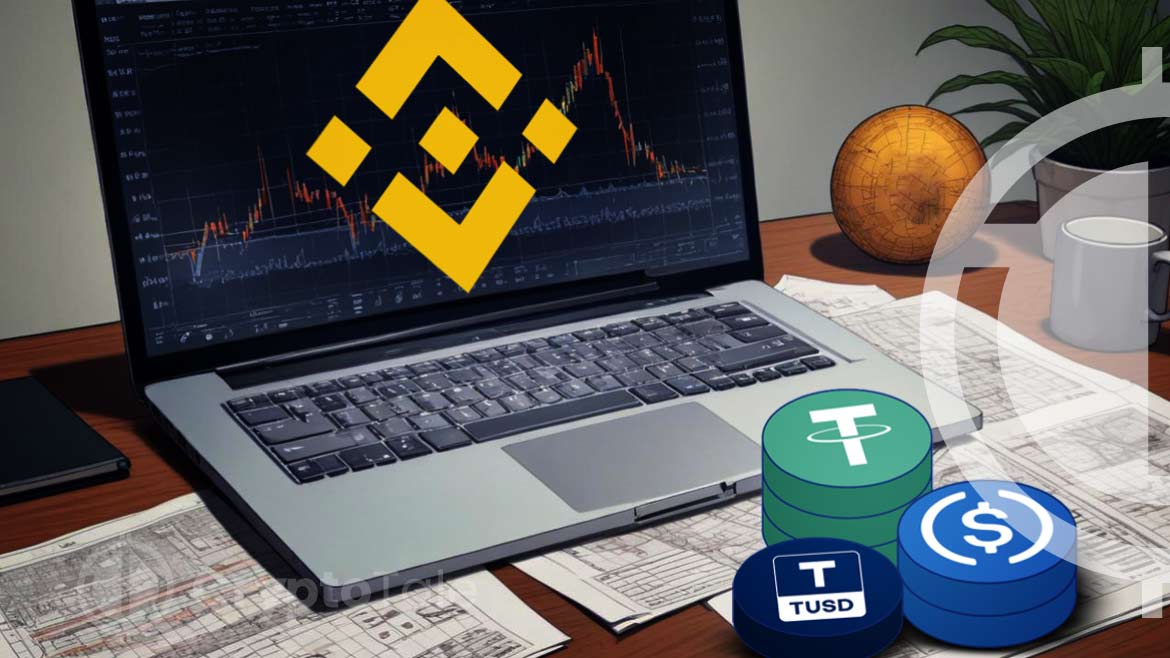- Binance will restrict access to unregulated stablecoins in response to the EU’s new MiCA regulations.
- Service changes in the EEA include ending copy trading and restricting subscriptions to various financial products.
- Binance will delist several crypto assets that do not meet industry standards, affecting multiple trading pairs.
Binance is the world’s largest cryptocurrency exchange by trading volume, recently announced big operational changes. These changes are a reaction to future restrictions in the European Union. The exchange plans to restrict access to unregulated stablecoins. This is under the EU’s new Markets in Crypto-Assets Regulation (MiCA). MiCA will take effect at the end of June.
Binance also stated that,
This will be a first step entering the new regulatory framework, and it will have a significant impact on the stablecoin market in EEA.
MiCA Stablecoin Key Points
The EU’s Markets in Crypto-Assets (MiCA) framework will add new laws for stablecoins, which will take effect on June 30, 2024. These laws will affect the digital asset market in the European Economic Area. Binance will make changes to follow new regulations.
EU Sets Stage for DeFi Integration with Traditional Banking via MiCA FrameworkThey will limit products to block EEA customers from using Unauthorized Stablecoins. The business intends to move customers from using Unauthorized Stablecoins to Regulated Stablecoins.
Approaching MiCA laws and guidelines
These laws would enable EMIs and credit institutions to create stablecoins. They do so by the existing EU Electronic Money Directive. Major cryptocurrency exchanges like Kraken and OKX are attempting to comply with regulations, potentially removing Tether’s USDT stablecoin from their platforms.
In contrast, Circle and its USDC stablecoin are well-positioned to satisfy these standards. In December 2023, Circle requested an EMI license after obtaining conditional registration in France. This action is part of Circle’s goal to comply with the EU’s MiCA framework.
Circle’s Chief Strategy Officer, Dante Disparte, emphasized the importance of MiCA. He stated that it shouldn’t be dismissed as a minor issue, like the Y2K bug. He highlighted that significant improvements are being made for digital assets in the EU, the world’s third-largest economy.
Delisting of Crypto Assets Does Not Meet Industry Standards
Binance announced on 3rd June that they could delist a few cryptocurrencies, including OmiseGO, Waves, Wrapped NXM, and NEM. This is part of its ongoing effort to ensure that all listed currencies meet industry standards. They also include trading volume, liquidity, network stability, security, public communication, and regulatory compliance.
Binance has reminded its customers that individuals who retain the delisted tokens before September 18 may have them automatically converted into stablecoins. But this is not guaranteed. If such a conversion occurs, Binance will alert users before finalizing the transaction. Eligible accounts will get the corresponding stablecoin value upon conversion.






